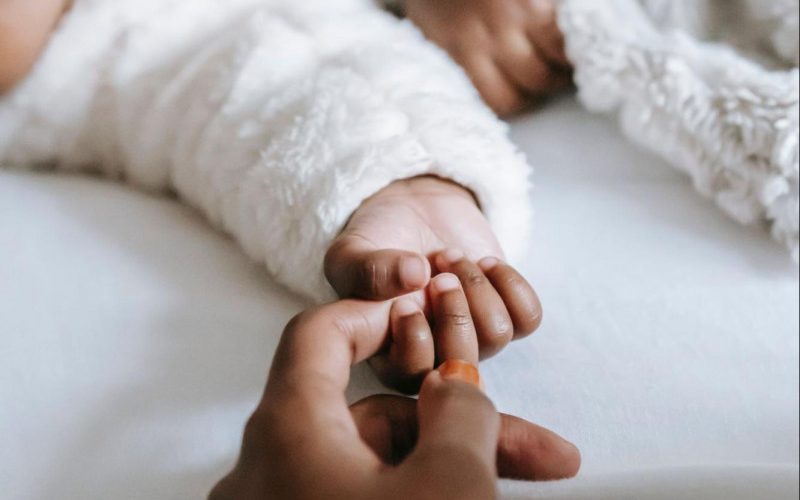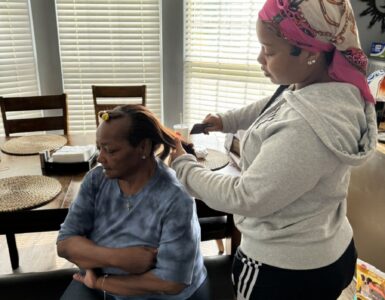By Dorothy Nathan
The US might be one of the most dangerous places for mothers to give birth, especially for those in the black community. With the spread of COVID-19 over the past year, maternal outcomes have worsened. The storm of the pandemic has increased the pre-existing issues of black health disparities and maternal mortality.
“For black women, something about growing up in America seems to be bad for your baby,” said Linda Villarosa, NY Times Magazine contributing writer.
Healthy mothers and babies are an important source of making our world and our communities a healthy and strong place. But what happens when many of these mothers, especially those who fall under the darker skin completion group, end up losing their lives during health care treatment of pregnancy when treated by medical experts?
During the Howard University journalism program, Villarosa said nationwide, black women are 3 times more likely to suffer or die from pregnancy-related causes than white women, with the rates also rising in DC and Maryland. Specifically, in wards 7 and 8, there is a low revenue rate and high malpractices in the area.
During the year 2013-2017, 95% of the maternity deaths were with African Americans despite the fact that they took up only 44.53% of the population. Dr. Neel Shah, a doctor in gynecology at the Harvard University School of Medicine said that people who are pregnant fall under the third leading cause of death from COVID-19.
In 2019, data shows that black women’s rate was 44 deaths per 100,000 live births, which is much more compared to the rate of 17.9 deaths for white women. This racial disparity observance continues to be a key factor in racial inequity in the medical industry.
“It’s not a race, neither is it genetics,” Villarosa said. “It’s racism. … I think of it as a mystery hiding in plain sight.”
Black mothers, in particular, have been hardest-hit when it comes to maternal mortality for decades, while the COVID-19 crisis is undoubtedly making it worse, according to the Harvard School of Public Health.
“Here we are with COVID-19, and we are still seeing a disproportionate burden of morbidity and mortality on black and brown communities,” said Michelle Williams, dean of Harvard T.H. Chan School of Public Health.
Many black women of today do not trust medical workers due to a long history of mistreatment in healthcare. Going all the way back to the time period of 1846, black women were thought of as having higher pain tolerance compared to white women. Slaves were tested on by a Doctor by the name of J. Marion Sims. Up until today, there is still a lingering idea that Black people can face higher pain tolerance from centuries ago, a myth created by southern physicians. New Doctors of today believe that Black skin is thicker than white skin. This myth prevents and affects fair health treatment today, especially if you are Black women because you are systematically undertreated for pain relative to White Americans.
“I used to think that there’s just something different about the black body, something different about the black culture, and that’s why we have poor health outcomes,” Villarosa said. “But now it isn’t that race is a risk factor for poor health, it’s the racism.”
This issue is a fact that black women often experience weathering, where the black community faces everyday toxic stress due to the systemic racism they deal with throughout.
“Racism is poor health treatment, its fear, its stress, it makes our lives hostage, and it makes pregnancy and childbirth even more dangerous, and it makes COVID-19 more deadly,” Villarosa said.
Awareness is one key to bring about change.
“Making sure that black maternal health is a relevant topic is definitely something that is starting to become more known in recent years. Some people did not know that black women are 3-4 times likely to die from childbirth. This is something that people are hearing and now understanding,” said Brittney Getahers, director of African-American outreach for the Florida Democratic Party.
As it is known, doctors take an oath to do no harm, but at the end of the day, harm is happening. Many people know about the birth difficulties the well-known celebrities Beyonce and Serena faced. Although these are two completely different people, they are similar in so many such as their status of wealth, popularity, but most importantly, the near-death birth issues they both faced during pregnancy. We would think that celebrities and top people like these would get even better healthcare, but the same thing other black women go through is the same thing these celebrities went through. This shows the disconnection and proof of their being a racist factor in most of our hospital environments.
The search for solutions to the cause of higher maternal mortality within the Non-Hispanic black women, the Maryland maternal health innovation program (MDMOP) launched severe maternal surveillance and review in assurance to test each hospital and see the outcome of the mortality and morbidity rates in Maryland. This plan helps “reduce these health factors that disproportionately affect a black woman at higher risk,” said Amy Hobbs, researcher and coordinator for the project.
Results from the plan will help for future actions taken during the years 2021-2024. These measures taken are to ensure a fair and quality improvement of the community and hospital care. Programs like the March of Dimes association seek to promote health equality and uncover the hidden racism in the health care system with the launching of implicit bias training.





Recent Comments